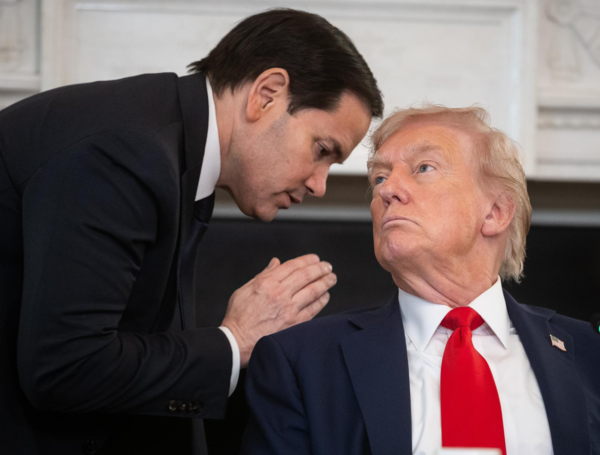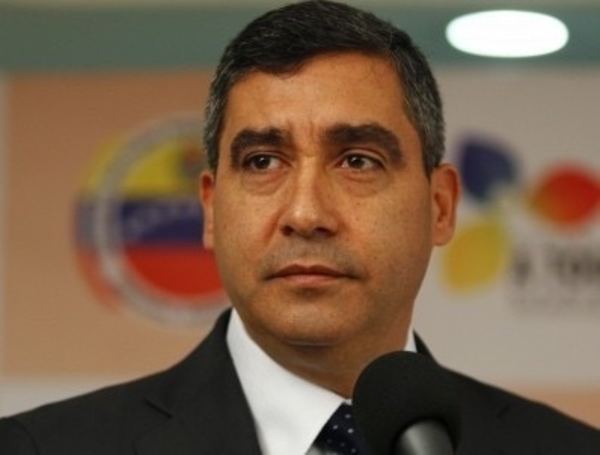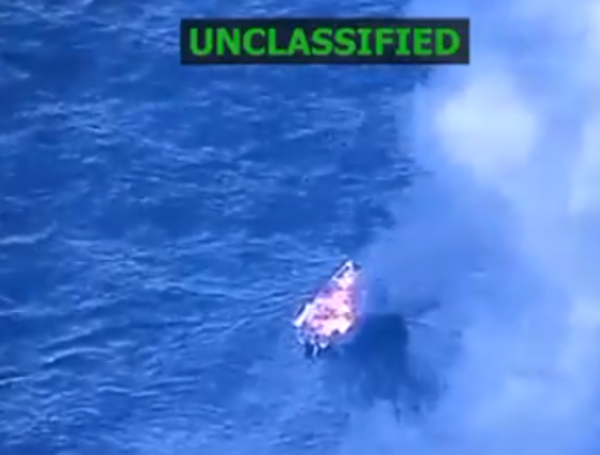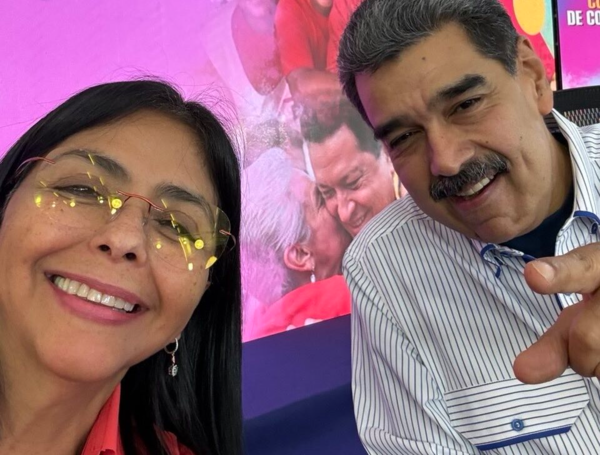Although Washington is multiplying threats and gestures of force against Nicolás Maduro's regime, experts point out that Donald Trump's strategy combines military pressure, sanctions, and secret diplomacy without a defined final objective. This ambiguity, they warn, could undermine the effectiveness of the offensive.
Proof of this is that this week, the Donald Trump administration ramped up pressure on Maduro and once again threatened to move from rhetoric to action. In a matter of days, Washington authorized the CIA to carry out covert operations in Venezuelan territory, warned that it was evaluating the possibility of carrying out ground military actions, and announced the destruction of two alleged"narco-boats" in the Caribbean.
This was compounded by the overflight of two B-52 bombers and several US Army helicopters off the Venezuelan coast, in what analysts interpret as a clear show of force.
The tightening of the strategy also marks a new turning point in Washington's military deployment in the Caribbean, which the United States justifies as part of its fight against drug trafficking and the so-called Cartel of the Suns. However, this move also demonstrates the White House's intention to reaffirm its presence in a region it has historically considered its sphere of influence.

The escalation coincides with the announcement of the retirement of Admiral Alvin Holsey, head of Southern Command, after just one year in the position. Holsey oversaw unprecedented operations: more than 10,000 troops deployed in the Caribbean, 2,200 Marines embarked on amphibious assault ships, and the presence of eight warships and a submarine patrolling the region.
As the White House redoubles its threats, attacks more vessels—six bombings have been carried out; the most recent bombing left two survivors, according to Reuters—and authorizes covert operations, it has become known that some Chavista sectors are exploring possible negotiated solutions to their international isolation.
The Miami Herald revealed on Thursday alleged secret contacts between high-ranking Venezuelan officials—led by Vice President Delcy Rodríguez and her brother Jorge—and representatives of Washington, with the mediation of Qatar.
According to the US media, the Rodríguez brothers have put forward two transition scenarios designed to ensure the continuity of Chavismo in power, albeit without Maduro—whom Washington accuses of ties to drug trafficking—at the helm.
The first proposal would see the president remain in Venezuela under security guarantees, while the second would place him in exile, in Türkiye or Qatar.
The plan also envisions a transitional government headed by Vice President Rodríguez and retired General Miguel Rodríguez Torres, a longtime ally of Hugo Chávez, now exiled in Spain after being a political prisoner of the regime itself. The plan does not mention opposition leader and recent Nobel Peace Prize winner María Corina Machado, considered by the Rodríguez brothers to be too"inflexible" to facilitate a political agreement.
Likewise, the Miami Herald highlights that it has been proposed to allow US companies to access strategic sectors such as oil and mining, in exchange for the US Attorney's Office dropping criminal charges against Maduro.

Delcy's defense of Maduro and the reinforcements in the border areas
Hours after the revelations, Delcy Rodríguez dismissed them, calling them a"fake" and attributing them to "psychological warfare" aimed at destabilizing the regime. Shortly afterward, she published a photo with Maduro in an attempt to reaffirm the government's cohesion.
Maduro, for his part, asserted that the entire Venezuelan high command is"more united than ever" and that its objective is to "defend the homeland." However, Qatari diplomats confirmed that their country has acted as a mediator between the two sides in recent months, in talks aimed at reducing tensions.
The Venezuelan regime described the recent US actions as a"direct threat." In response, Maduro ordered military maneuvers with thousands of troops in the so-called Integral Defense Zones (Zodi), as part of the Independence 200 plan.
In the states bordering Colombia, such as Táchira and Amazonas, Venezuelan authorities reinforced patrols and controls. In the former, where the three main bridges connecting Venezuela and Colombia are located, troops were deployed around the Simón Bolívar International Bridge. In the latter, operations focused on protecting"strategic companies" and "basic services."
Regarding the CIA intervention order, authorized by Trump under the justification of combating drug trafficking networks, Maduro immediately responded:"How long will the CIA continue to coup? Latin America doesn't want them, doesn't need them, and repudiates them."
How far will Trump go in his tension with the Venezuelan regime?
Beyond military force, analysts maintain that Washington combines military pressure, economic sanctions, and diplomatic contacts without a clear exit plan. This lack of strategic coherence, they say, is also reflected on the military front.

Michael Shifter, a professor at Georgetown University and former president of the Inter-American Dialogue, notes that the US military and intelligence presence in the Caribbean"leads to much speculation," but that no "clear or targeted" actions have been observed.
“Trump is most likely seeking to provoke panic within the regime and a chain reaction within the armed forces that eventually results in Maduro’s ouster. But that seems more like hope than a well-thought-out strategy,” he said.
For Shifter, beyond its geopolitical implications, the offensive has a strong domestic component."Trump seeks to project strength and power, reinforcing the image of a great power in his neighborhood."
The analyst warns that, despite the belligerent tone, Washington does not seem willing to take major risks."Trump does not want to jeopardize the lives of American soldiers," he concluded,"so his decisions will remain cautious. And although there are senators calling on Congress to exercise its constitutional role regarding the use of force, today the legislature is subject to the executive branch."
Dorothy Kronick, a professor at the University of California, Berkeley, agrees that the White House's objectives are diffuse."(Marco) Rubio may have a regime change agenda, others a spectacular agenda against drug trafficking, and some a negotiation over oil resources. That's why I don't think so much about 'the government,' but rather about various actors with their different ideas," she noted.
The risk, Kronick warns,"is not just direct confrontation, but that pressure without a clear objective ends up closing the few remaining routes to a negotiated solution."
Maduro clings to power
Despite the increased pressure from Washington, the Chavista response has been defiant.
Characterized by its cohesion, the Chavista movement remains steadfast in the face of an opposition and even international pressure that has been waiting for more than 25 years for a"break" within the Armed Forces or the United Socialist Party of Venezuela (PSUV) itself.
“I have bad news for the schemers, the imperialists and all their media: today the high political-military command of the revolution is more united and determined than ever to defend our homeland,” Maduro stated.

Venezuela has been a deeply militarized country for years: uniformed personnel run ministries and hold traditionally civilian positions. Faced with threats from Washington, Chavismo has reinforced these controls and strengthened its espionage and surveillance apparatus.
For political scientist Daniel Árias, the announcement of the CIA operations has unleashed"enormous paranoia" in leftist circles, where a"mythological fear" of intelligence agents persists.
If a US intervention is confirmed, the expert warns, it would be a significant escalation from the current situation, recalling the years when Washington frequently resorted to covert operations to pressure governments in the region.
Geoff Ramsey, a researcher at the Atlantic Council, points out that"the CIA has been active in Venezuela for the past 25 years." What's relevant today, he says, is that this is a"strong psychological operation" targeting the regime.
"The White House's preference is for this deployment to serve as a signal to the Venezuelan Armed Forces so they decide to rise up against Maduro," he explained. But the strategy of rupture hasn't yielded results:"Maduro is terrible at governing, but quite good at keeping his top brass loyal, while the people are starving."
Just remember 2019, when the United States supported the interim government of opposition leader Juan Guaidó, who was hoping for military support to overthrow Maduro. That early morning of April 30, the soldiers didn't arrive, and the attempt collapsed.
Today, with a fractured opposition, more than 800 political prisoners, and an economy devastated by inflation, the Venezuelan reality is filled with uncertainty. And, for now, Trump may have redoubled the pressure, but without a clear roadmap for the day after, the offensive risks losing steam and ending up reinforcing Chavismo's narrative of resistance.

